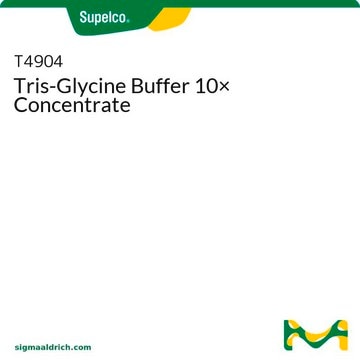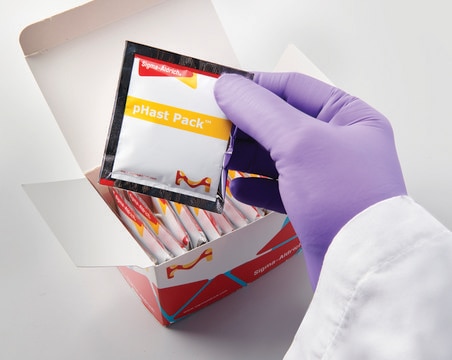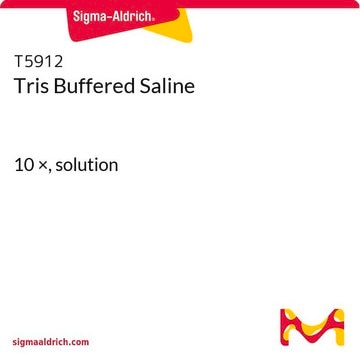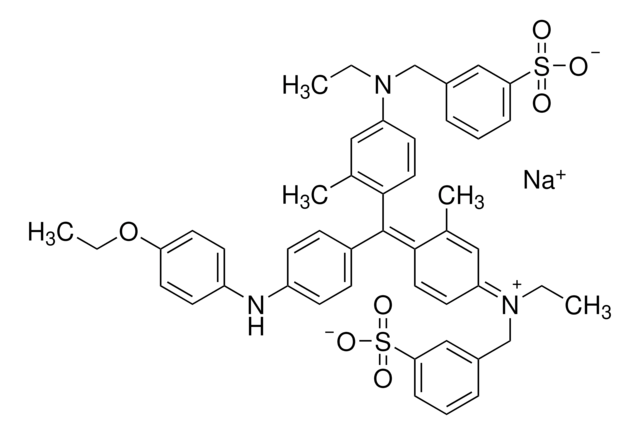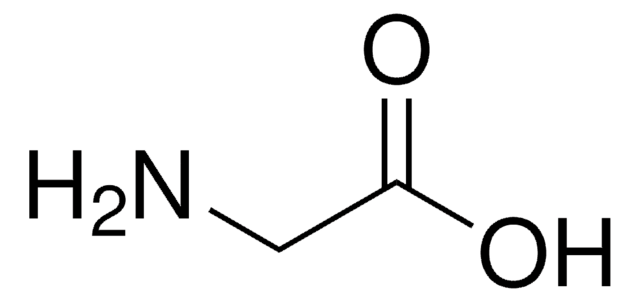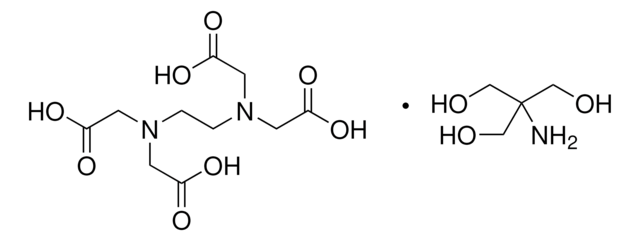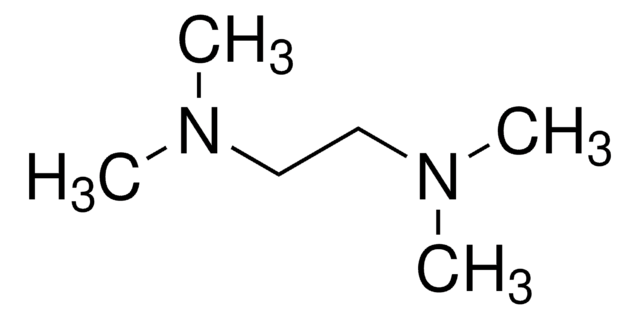93321
TRIS Glycine buffer solution
BioUltra, 10× concentrate
Synonym(s):
Blotting buffer solution
About This Item
Recommended Products
product line
BioUltra
Quality Level
form
liquid
quality
10× concentrate
composition
glycine, 1.92 M
TRIS, 0.25 M
impurities
insoluble matter, passes filter test
proteases, none detected
ign. residue
≤0.2%
pH
8.5-8.7
anion traces
sulfate (SO42-): ≤50 mg/kg
cation traces
Al: ≤5 mg/kg
As: ≤0.1 mg/kg
Ba: ≤5 mg/kg
Bi: ≤5 mg/kg
Ca: ≤10 mg/kg
Cd: ≤5 mg/kg
Co: ≤5 mg/kg
Cr: ≤5 mg/kg
Cu: ≤5 mg/kg
Fe: ≤5 mg/kg
K: ≤50 mg/kg
Li: ≤5 mg/kg
Mg: ≤5 mg/kg
Mn: ≤5 mg/kg
Mo: ≤5 mg/kg
NH4+: ≤200 mg/kg
Na: ≤500 mg/kg
Ni: ≤5 mg/kg
Pb: ≤5 mg/kg
Sr: ≤5 mg/kg
Zn: ≤5 mg/kg
λ
neat
UV absorption
λ: 260 nm Amax: 0.1
λ: 280 nm Amax: 0.1
Looking for similar products? Visit Product Comparison Guide
Related Categories
Application
Other Notes
wgk_germany
WGK 1
flash_point_f
Not applicable
flash_point_c
Not applicable
ppe
Eyeshields, Gloves
Choose from one of the most recent versions:
Certificates of Analysis (COA)
Sorry, we don't have COAs for this product available online at this time.
If you need assistance, please contact Customer Support.
Already Own This Product?
Find documentation for the products that you have recently purchased in the Document Library.
Customers Also Viewed
Our team of scientists has experience in all areas of research including Life Science, Material Science, Chemical Synthesis, Chromatography, Analytical and many others.
Contact Technical Service